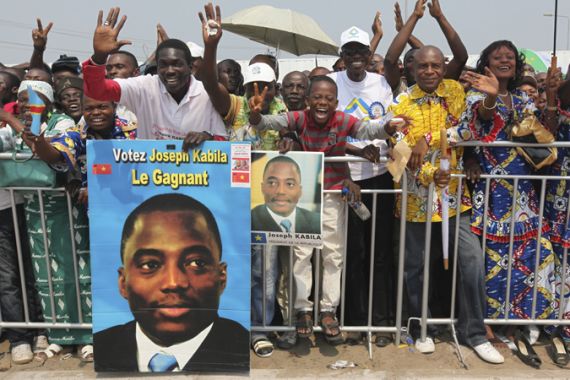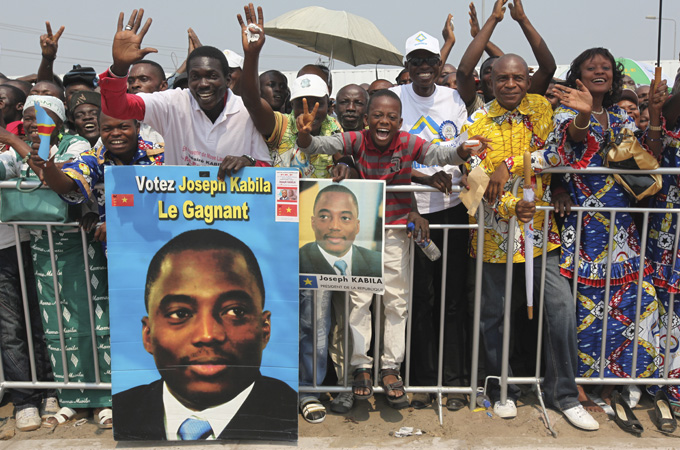Doubts over DR Congo vote transparency
Serious concerns expressed over electoral procedures and opposition candidates’ access to media.

 |
| Joseph Kabila, the incumbent president, is expected to win the November 28 presidential election [EPA] |
International observers have raised concerns over the Democratic Republic of Congo’s forthcoming elections, citing opaque procedures at the top court for handling allegations of irregularities and calling for all candidates to have equal access to local media.
Presidential and parliamentary polls scheduled in the central African state for Monday have been marred by pre-electoral violence, logistical delays and allegations by opposition parties.
The outcome of the vote is almost certain to keep the incumbent president, Joseph Kabila, in power who remains a divisive figure among the 70 million Congolese.
The European Union said on Wednesday that there was a lack of transparency in how the supreme court, the body that will ultimately have to ratify the results, was handling complaints over the organisation of the election.
“Citizens and election observers alike need to be aware of all the decrees relating to the electoral dispute, which is unfortunately not the case for the time being,” the EU said in a statement.
The US-based Carter Center also called on the court to publish its decisions on official complaints relating to the nomination of candidates in the two polls, which Congo is seeking to run side by side next week.
No comment was immediately available from the supreme court or the government in Kinshasa.
Politician killed
The concerns over transparency came a day after a opposition politician was reportedly killed in Kinshasa, the capital.
Police Inspector-General Charles Bisengimana said on Wednesday that Marius Gangale, an opposition member of the DRC’s provincial assembly, was killed the night before.
Gangale’s wife said she was in the car with her husband when two attackers shot him and demanded her belongings.
Gangale was a leader in a major opposition party, but he was not running in the November 28 elections for the presidency and legislature.
Human rights groups are concerned about a possible increase in violence and hate-speech campaigns which could jeapordise the elections in central African nation.
The New York based Human Rights Watch said it has documented dozens of cases, including one targeting supporters from leading opposition candidate Etienne Tshisekedi’s province.
Simmering conflicts
Monday’s presidential election is the second since a 1998-2003 war in which as many as five million people are estimated to have died.
The DRC still faces simmering conflicts with rebels in its east despite a formal peace accord eight years ago.
The UN said in a report this month that manipulation of the DRC security forces had led to a crackdown on opposition parties, an allegation the government has said is unfair.
Kabila is hailed by some for unifying the mineral-rich country after a ruinous 1998-2003 war, but has also been criticised by others for failing to tackle poverty and corruption.
Hastily installed as president in 2001 when his father Laurent was assassinated at the height of the civil war, Kabila went on to win election in a disputed 2006 vote.
Vital to his success so far has been an ability to retain the backing of international allies, reconcile with former foes such as Rwanda, and use coalition pacts to shore up his power at home.